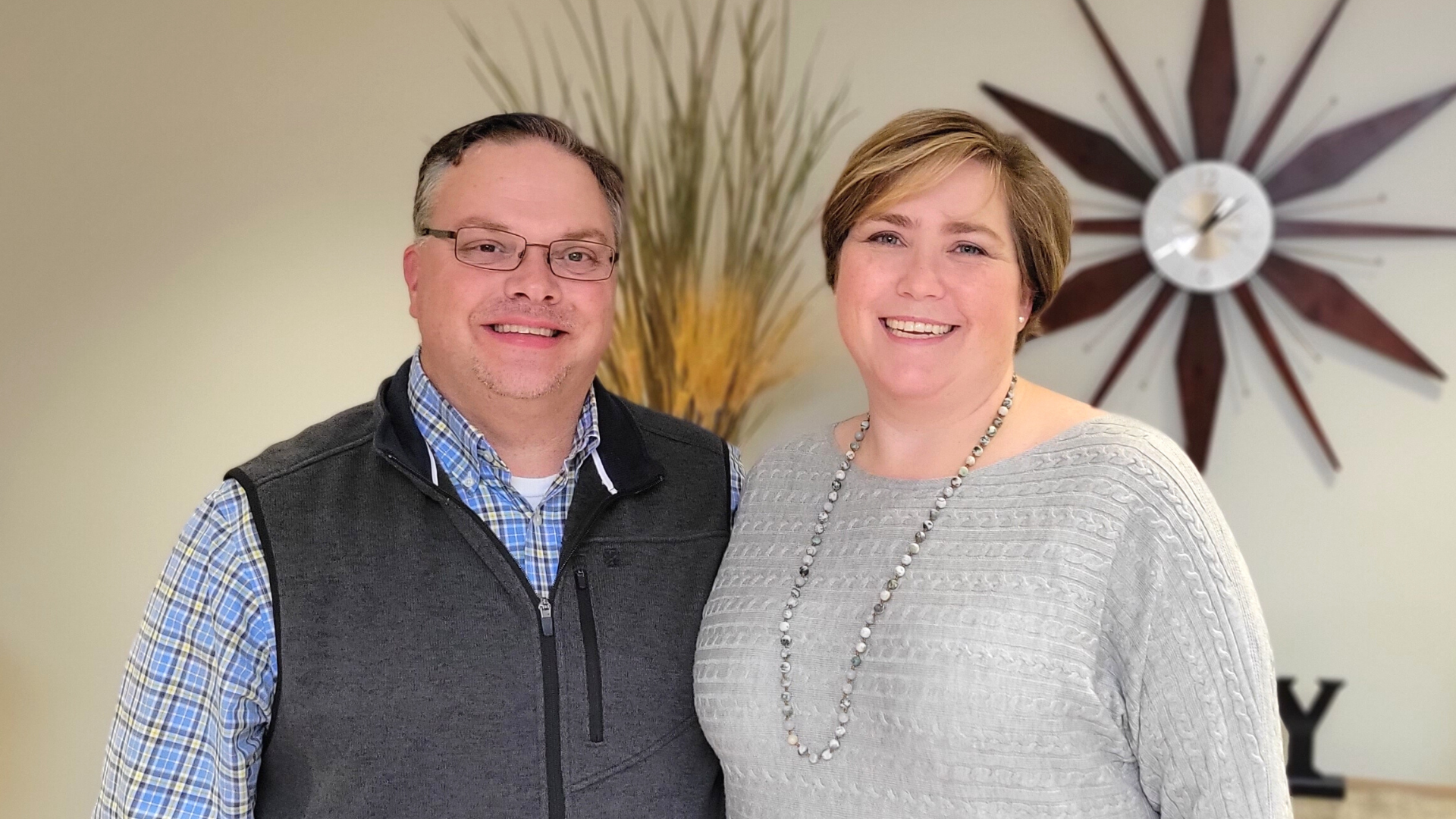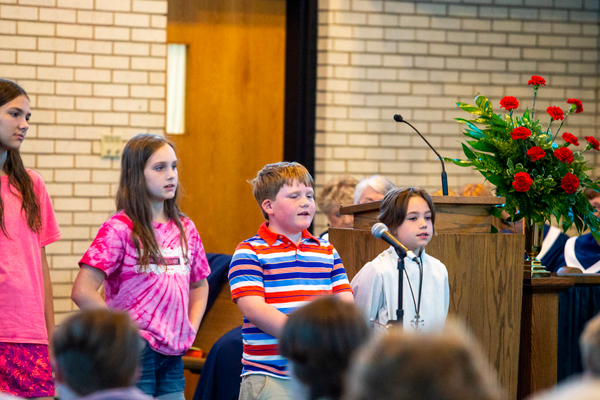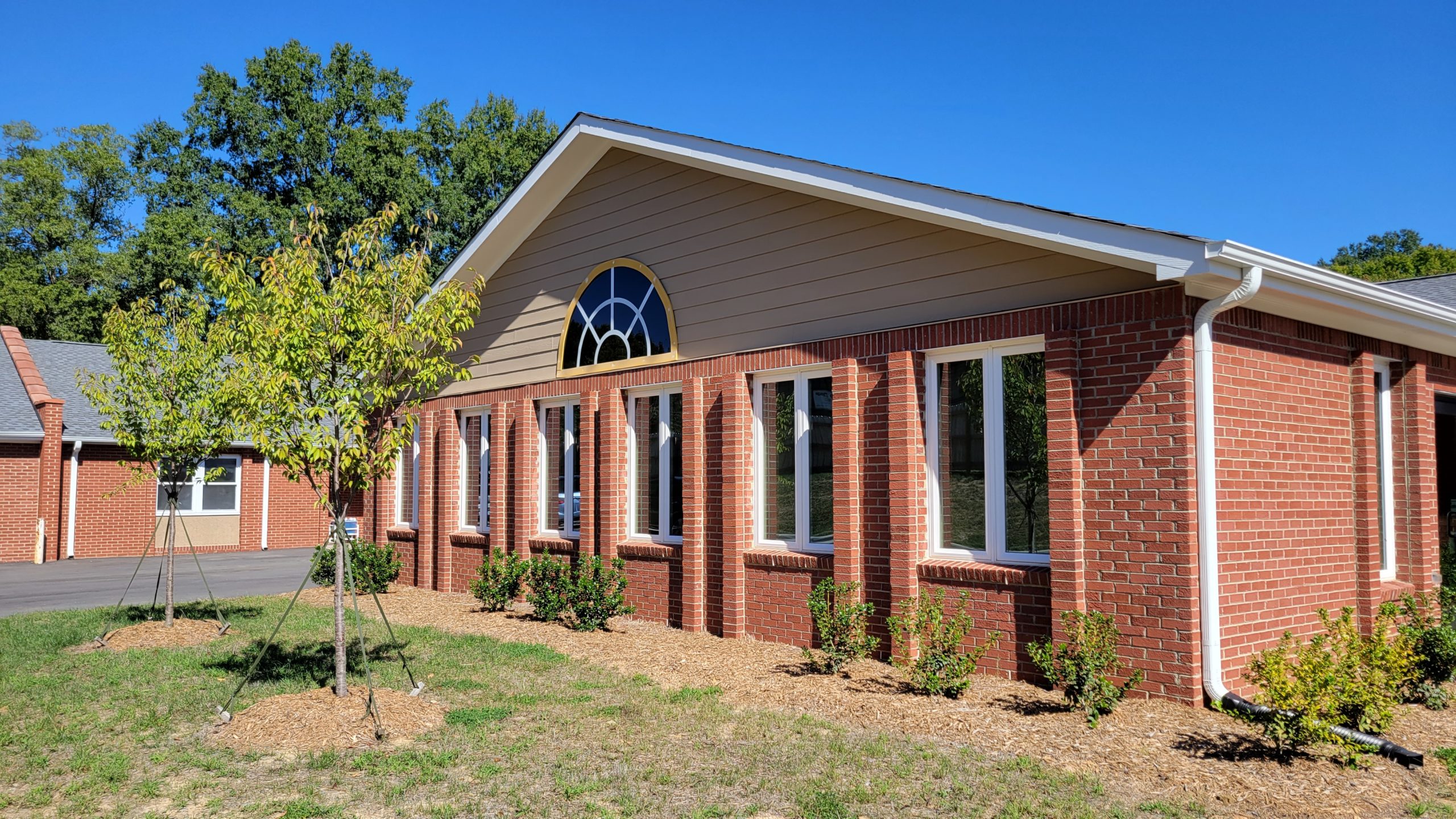
Rev. Wes Smith likes to tell the story of a church member who left the congregation in a huff a few years ago after a decision didn’t turn out in the desired fashion. Prior to departing, the church member delivered one final rebuke: “I can’t tell if you’re a church or a community center.”
Why, thank you, Wes thought.
“I think this person meant it as a complaint or even an insult,” Wes recalled in a recent interview. “I took it as a compliment. This is not a closed-off club. Loving our neighbor means opening our home.”
This is a mission-defining value for the people of Harrisburg UMC, where an expansion has made it easier for guests and outside groups to use the campus.
The church expanded its multi-purpose space, preschool and main offices while adding a dedicated youth hangout room – complete with ping pong, games and homework tables.
A new brick tower with a cross serves as a visual landmark to distinguish the church along a busy commercial stretch of NC 49. The project, completed in February, also added a carpool lane and better handicapped accessibility.
It’s the result of faithfulness and a bit of patience on the part of church members, say Wes and Toni Ruth Smith, a clergy couple who has led the church since 2011.
“It was actually a great time to build – we weren’t having (in-person) worship anyway,” Toni Ruth said. “As we’re beginning to get back in the space post-COVID, we’re learning how to do all the things we built it for.”
‘Able to do more outreach’
The church’s location near the center of Harrisburg, pop. 16,500, makes it an ideal site for Lunch Plus, a Cabarrus County program that welcomes seniors five days a week for nutritious meals and wellness programs.
An Alcoholics Anonymous chapter meets three nights a week, continuing a relationship that dates back to the 1980s.
Sanctuary Counseling Group uses an office for mental health counseling appointments as an ecumenical outreach ministry of the WNC Conference.
“This church has consistently used its building as mission,” says Toni Ruth. “We have lots of outside groups that are part of our church family. We wanted to be able to do more outreach – to be more available for our neighbors.”
‘Courage to lead differently’

At 59 years old, Harrisburg UMC is a relatively young congregation, meaning it does not have a big endowment or large supply of deep-pocketed donors.
The Smiths credit the Foundation for serving as a catalyst. The 430-member church received a low-interest loan through the United Methodist Development Fund loan program. An endowment managed by the Foundation provides a lasting source of annual income.
The Foundation has also nurtured Toni Ruth and Wes in their career development. Toni Ruth completed the Reynolds Leadership Academy in Evangelism and Discipleship. Wes took part in the Reynolds Academy for Ministry Management.
“Being part of those cohorts gave us the skill and courage to lead differently at this church,” Toni Ruth said. “I don’t believe we would be here today without the investment of Reynolds Ministries.”
Church leaders drew inspiration from their experience in Seeds of Change, a series of workshops led by Wesley Community Development Corporation for churches to learn how to better use their properties for more effective ministry.
As the Conference’s official property manager, part of Wesley’s mission is to help churches re-purpose their physical assets with an eye toward to modern-day needs.
Wes offers three pieces of advice for church leaders mulling similar possibilities.
In its mission statement, church leadership was intentional in using the phrase “tangible ways” to describe how it will serve. In that sense, updates to the building became a spiritually grounded endeavor.
“All of these small additions make us more open to the community – and they make it easier for the community to be part of us,” Toni Ruth says. “That’s part of our dream.”

Protected: Children have a place at 2025 Annual Conference
Neighbor Way Kids Camp, offered as a gift to families attending 2025 Annual Conference, will give kids a glimpse at how God works in the world.
Best wishes to a cherished colleague and friend
As she leaves the Foundation to move closer to family, Susan Cothern offers a word of thanks.
Board gives thanks for leadership, growth and fruitful ministry
There was a special tribute for outgoing board chair Anne Martin, whose steadying presence proved invaluable as the Foundation navigated post-pandemic recovery, disaffiliation and accompanying challenges.